October 22nd, 2019
BURLINGTON, ON
As the final results were coming to an end the CBC switched to final comments by the leaders. For a brief moment I thought CBC had picked up the feed from those horrible debates where the leaders talked all over one another. Nobody obviously had coordinated their appearance so at one point all three of these guys were on the screen at the same time and the tough decision at the CBC was who would be given voice.
Trudeau gave a prime ministerial address about national unity, though what else could he say after the big wipe out in the west. Singh fell back on his stump speech, about this fictional kid suffering from some ailment and worrying about how his parents were going to be able to afford the drugs.
Scheer was combative, couldn’t wait for that next election and he’ll be ready – because it doesn’t matter what you do as long as you get to be PM. And being 30 plus seats behind the Liberals he knows the knives are out.
The most important take away message from Monday night is how our electoral system is failing us as a nation:
1. The BLOC had only about 1% more of the popular vote than the Green Party (7.7% vs 6.5) but won 32 seats to the Greens’ 3;
2. The NDP had more than twice the popular support across Canada than the BLOC but ended up winning 8 fewer seats;
3. The Conservatives won the popular vote yet lost the election.
Our FPP system is unrepresentative and unfair. Of perhaps lesser consequence, we sadly watched knowledgeable and experienced politicians, such as Lisa Raitt and Ralph Goodale get burned just because they were running for the ‘wrong’ political party in the wrong geographic area.
Four years ago Justin Trudeau promised to change our electoral system. But the parliamentary committee he created took on a life of its own and ended up recommending a mixed member proportional (MMP) system. That is currently the most popular and workable electoral system globally, but since the electoral reform committee demanded a referendum the recommendation got shelved.
The fact is that every referendum on MMP in Canada has failed so far, largely because, like gun control and climate change, attempts at rational discussion eventually degenerates into partisan positioning. And even if the parties stopped bickering it would still take a monumental effort to educate and possibly convince Canadians to opt for this relatively more complex, though inherently more fair, electoral system.
It is no secret that Trudeau would have preferred keeping the first-past-the-post (FPP) system coupled with a preferential ballot. So it is unclear why he just didn’t implement that. After all, he had obtained a mandate for electoral change in the 2015 election. Had he brought in the new ballot it is most likely Trudeau would have won another majority in Monday’s election.
The second take-away of the election result is that these are some of the most polarizing times we’ve seen in this country. The rise in western alienation over oil has helped to spawn a renewed enthusiasm in Quebec for national sovereignty. Further, Alberta politicians have insulted Quebec over the equalization formula, using it to attempt to blackmail the province into accepting a highly unpopular pipeline.
The west really needs to take some time to read the tea leaves. First of all, they should understand that fossil fuels have no long term future. Building a pipeline with a forty year life when almost nobody will be burning oil in twenty is a totally irrational policy. So it’s time to get on with diversification.
Trudeau undoubtedly knows that about pipelines, but he is willing to compromise his principles as the cost of governing all Canadians. Yes, that love is unrequited. In fact Trudeau is irrationally hated in the west, much as his father was. And these folks are willing to let their animosity for the Liberal party rule out any chance of being involved in decisions that will affect them. Cutting themselves out of the governing party is cutting off their noses to spite their faces.
So this may be the time for tough love to come back for Alberta and Sask. To survive as a minority government Trudeau will be forced to act on his four year old promise to end the subsidies the oil companies get. And that will mean tougher times for unsustainable petroleum operations and speed up coming to grips with the future.
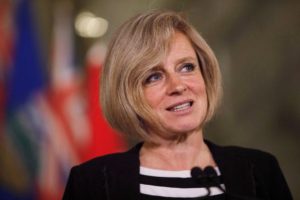
Rachel Notley, a New Democrat who lost the a renewed Conservative party in Western Canada called the United Conservative Party.
Albertans still don’t get it that Liberals only agreed to allow the TMX expansion go ahead because former premier Notley imposed a carbon tax and other measures to reduce the province’s longer term climate changing emissions. Should the Liberal’s political survival depend on now cancelling that project, who would be there to represent Alberta’s interest in Cabinet?
This was a difficult election. The Liberals didn’t really have a platform, running on their record, more of the same, and topping up with some new goodies. The Tories had a short list of things they would do, but then they also promised a number of cuts only at the eleventh hour – but none of that measured up to what you’d call a platform. They were convinced that attacking and smearing Trudeau’s character with lies and made up stuff was all they needed to do to win.
In the end one would have to say that climate change became the dominant issue of the election. Two thirds of all votes went to parties which were committed to take action on the climate. The carbon tax is here to stay, as is the ban on oil shipping off the northern coast of BC, and as is the new environmental approval process and a plan to become carbon neutral by 2050.
The Conservatives are a western based party, spun off largely from the former Reform party. They may offer some lip service to reducing our carbon foot print but they were not prepared to do anything serious to reduce Canada’s dependence on fossil fuels or its place in our economy. And that is the biggest reason Andrew Scheer lost.
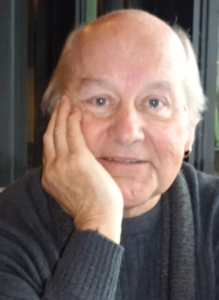 Ray Rivers writes regularly on both federal and provincial politics, applying his more than 25 years as a federal bureaucrat to his thinking. Rivers was once a candidate for provincial office in Burlington. He was the founder of the Burlington citizen committee on sustainability at a time when climate warming was a hotly debated subject. Ray has a post graduate degree in economics that he earned at the University of Ottawa. Tweet @rayzrivers
Ray Rivers writes regularly on both federal and provincial politics, applying his more than 25 years as a federal bureaucrat to his thinking. Rivers was once a candidate for provincial office in Burlington. He was the founder of the Burlington citizen committee on sustainability at a time when climate warming was a hotly debated subject. Ray has a post graduate degree in economics that he earned at the University of Ottawa. Tweet @rayzrivers
Background links:














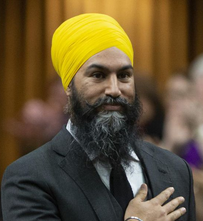
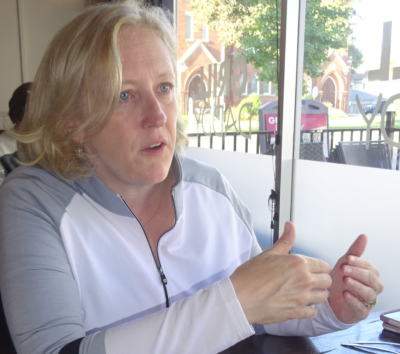
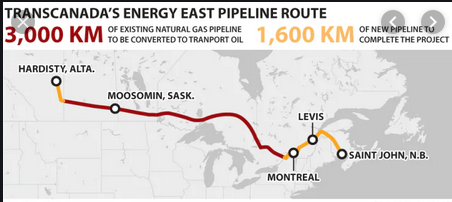
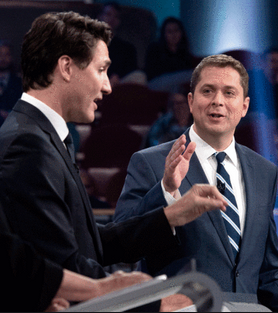





Your last paragraph left me completely cold. You live in your own bubble, thinking, wishing and hoping that fossil fuels will be phased out in a mere 20 years, which still has the possibility of being within your lifetime. Not going to happen and it is not the reason the Conservatives did not win the election. Notice I did not use your phrase “lose the election”. They may not be forming the next government, but they by no means “lost” the election-they increased their seat count at the expense of the Liberals, they got more of the popular vote and they are a national party. If the “fossil fuel file” is such a big deal for the electorate, you have a hard time explaining the lack of traction of the Green Party and the less than stellar performance of the NDP.
If what you say is true, that this election under some proportional or ranked-ballot voting system would have resulted in a Liberal majority, I hope we never change way we vote. They did not deserve a majority,
I am sorry to see Lisa Raitt out of federal politics. We need more bright women like her in politics, not fewer. Imagine, her failing is that she was a tough Labour Minister not allowing herself to be cowed by unions wanting to close down the national transportation lifeblood of the country. Fancy that. Who would thunk it? Oh, yes, Margaret Thatcher.
Politicians of all stripes need to realize that there are reasonable, hard-working people in Alberta, who understand what needs to be done. They were there before oil was discovered, they are there now, and will still be there when it is gone. They are farmers, builders, family people who have been badly represented while oil barons rushed to make money and politicians bent to their will. They are the people who elected leaders like Peter Lougheed who saw the risks posed by an oil based economy and tried to offset them. They are the people who were pushed aside in the rush to exploit the oil without regard for the future. They are still there and a smart politician will reach out to them regardless of which party is in charge. (PS: these people are called Progressive Conservatives, and they exist everywhere, despite the efforts of Manning, Harper, Ford et al to expunge the brand)
A few thoughts on Ray’s points:
* The Bloc’s vote can’t be compared to the national parties’, since it comes solely from Quebec. In that province, the seat results fairly reflected the wishes of the voters.
* Hopefully, Albertans will realize that Jason Kenny’s scorched-earth approach to anyone concerned with carbon emissions from the oil and gas industry was a mistake of truly gargantuan proportions. With Rachel Notley, they had a reasonable approach that would have led to reduced emissions, cleaner products and a path to gradually end the province’s total reliance on fossil fuels as its economic engine. (And let’s not kid ourselves: oil is not going away in 20 years. Even if we got every gas-burning car off the road — and good luck with that, despite its laudability as a goal — we would still use up to 50% of present levels of oil consumption.)
* I have to completely disagree that the loss of Lisa Raitt was sad. As perhaps Canada’s worst-ever Labour Minister, she crossed an information picket line of aerospace workers in Toronto and was heard calling them “animals.” She used back-to-work legislation on the first day of a railway strike.
* With support in the mid-thirties percent, neither the Tories nor the Liberals have anything to crow about in terms of the popular vote. Probably the main conclusion we can draw from the numbers is that the parties of the centre-left trounced the right wing by a margin of two to one.
* Ray neglected to mention the abysmal showing of Maxime Bernier, whose shameful dog-whistle pronouncements and nutjob ideology got him exactly what he deserved. It’s scary, though, that he was a close runner-up to Scheer for the leadership of the Tories. If anything was truly encouraging about this election, it was his wholesale rejection by the voters.
* I’m in complete agreement on Ray’s comments about the debates. They were shameful. We need to put the leaders into separate studios to prevent interruptions and give each of them their allotted time so we can actually hear what they have to say.